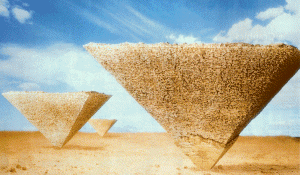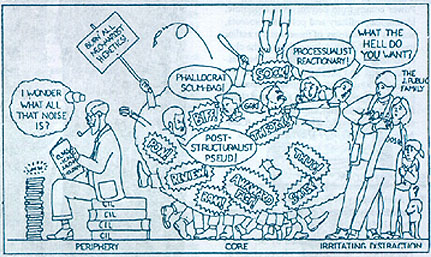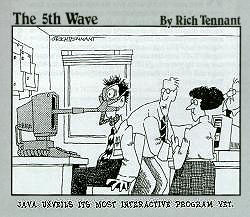|
IN ARCHAEOLOGICAL RESEARCH STRATEGIES
ANTH 229B Spring 1997 |
|
IN ARCHAEOLOGICAL RESEARCH STRATEGIES
ANTH 229B Spring 1997 |
Things are never
quite the way they seem! 
 ....some things just seem to stay the
same!
....some things just seem to stay the
same!


Professors
Kent Lightfoot <lightfoo@qal.berkeley.edu>
and
GO SUNDEVILS!
University of California at Berkeley
The
page is best viewed ![]() with Netscape 2+
with Netscape 2+
![]()
Monday 12-2, Rm. 101, 2251 College
Course Description
This course is a required pro-seminar for first year graduate students in Archaeology. This semester the focus is on the design and implementation of archaeological research, with an emphasis on strategies for the retrieval and empirical study of material evidence in the field and laboratory. The seminar will also stress the constant interplay between theory and method in the design and implementation of research strategies; calculated to compliment your last semester's 229A course in theory.
The seminar is structured to a large degree around the process of developing, writing, submitting, and implementing a research project through the National Science Foundation (NSF). The NSF is the major governmental agency is this country that regularly funds "pure" archaeological research, both at senior and doctoral levels (dissertation improvement grants). Many of you will probably be developing a dissertation improvement grant for NSF at some point during your graduate career, and will probably prepare senior grants after you have received your Ph.D. Thus, it is in your professional interest to learn as early as possible what constitutes a "winning" proposal, one that will be judged positively by your professional peers.
Additionally this year, and in response to the increasing reliance on electronic media in the field, lab, and at NSF, we will integrate that media into coursework and the final paper. We encourage you to explore the electronic option, that by the time you are senior archaeologists will be de rigeur for data management and in the field. The course web site will be updated when necessary, and contains e-mail links, syllabus changes, and web links to appropriate other sites.
Requirements
The primary requirement for this seminar is the preparation of an NSF grant proposal, following precisely the guidelines issued by NSF for dissertation improvement grants. We expect you to prepare this proposal as if you were actually submitting it through the Berkeley Sponsored Projects Office (SPO), including exact length parameters, budget, cover sheets, etc. You will download the forms from either the NSF Web Site <http://www.nsf.gov>, or Berkeley's SPO site < http://www.spo.berkeley.edu/> using either the Windows or Mac platform. If you do not have access, you can access the web at ICCF. We will also judge these proposals competitively, drawing upon some of our faculty colleagues as a mock NSF panel (don't worry, they are nice people).
We intend to stick rigorously to the following deadlines:
Feb 10th: You will submit a 1-page statement of your proposal research topic, including the theoretical problem that your proposal seeks to address, and the specific region and temporal period that it will concern. Be prepared to discuss this statement in class.
Apr 7th: A first draft of your proposal is due in class. No exceptions and no late drafts. This is because we wish to comment on and edit your drafts, returning them to you by Apr 16th, so that you can make final revisions.
Apr 28th: Your final proposal is due in class, ready for submission to SPO. Be prepared to summarize your proposal orally in about a 15-min presentation, which will be critiqued by a faculty review panel.
In addition to this formal requirement, each of you is also expected to take the lead role in one or more of the seminar days (you will sign up for topics on the first day of class). This will involve developing the specific reading list for that day (in consultation with Lightfoot and Shackley), preparing an outline for the day's discussion, and taking the lead in the discussion itself.
The NSF proposal will count for approximately 75% of your grade, while the oral contribution(s) will count for the other 25%.
This is a graduate seminar: that means everyone does the reading in advance, and everyone contributes fully to the discussion. This is NOT a lecture course.
Tentative Schedule of Topics
Jan 27: Organizational meeting
Feb 3: The NSF Grant: what is it? what makes for a successful proposal?
Guest lecturer: Neil Maxwell, Sponsored Projects Office (SPO)
Feb 10: Discussion of student proposal topics: the stress will be on the choice of theoretical problem and its fit with the actual field site
Feb 17: President's Day Holiday
Feb 24: Research Designs and Strategies
Mar 3: Archaeological Survey
Mar 10: Excavation Strategies and Sampling
 Link to the Çatalhöyük web site
Link to the Çatalhöyük web site
Mar 17: Data Recovery in the Field (issues of recovery methods, data recording, databases, etc.)
March 24-28: SPRING BREAK
March 31: Laboratory Analysis, the field electronic laboratory
Apr 7: Use of specialized analyses/consultants
Apr 14: Developing Realistic Fieldwork/Laboratory Plans: constraints of time and $$$, budgeting, obtaining necessary equipment and background information, etc.
Apr 21: Quantitative methods/computerization
Apr 28: Curation agreements, NAGPRA, Federal curation regulations
Guest participant: Dr. Ed Luby (Phoebe Hearst Museum of Anthropology)
May 5: Formal presentation of proposal to faculty panel
May 12: Formal presentations (cont.) and faculty evaluations
Link to the Berkeley Archaeological EDXRF Lab
HAVE A GREAT SUMMER!
I
think that I shall never see, a sample of a plain old tree,
a tree that's not been carved or painted, calcified, burned or
otherwise tainted,
But bones and shells and peat I get; preparing them all day i
sweat.
Won't someone please take pity on me, and send in just in just
one plain old tree.
T.A Rafter in Procs 6th international Radiocarbon Conf, Pullman,
1965. P-761.
![]()
Search for other subjects on this web:
![]()
Copyright © 1996 The Regents of the University of California, and M. Steven Shackley. All rights reserved.
Revised:20 March 2015All materials appearing on this Web (http://www.swxrflab.net/) may not be reproduced or stored in a retrieval system without prior written permission of the publisher, except for educational purposes, and in no case for profit.
![]()